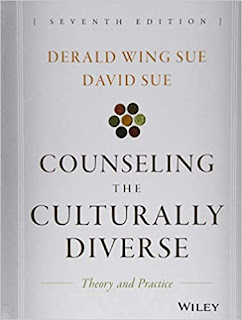The standard bearing aide for multicultural directing courses presently upgraded with research-based, effective, and educational refinements Directing the Culturally Diverse: Theory and Practice, seventh Edition is the new update to the original work on multicultural guiding. From creator Derald Wing Sue – quite possibly the most refered to multicultural researchers in the United State – this extensive work incorporates momentum research, social and logical hypothetical developments, and extended investigation of disguised prejudice. Packed with certifiable models, this book clarifies why discussions spinning around racial issues remain so troublesome, and gives explicit methods and counsel to driving straightforward and useful conversations. The new version centers around fundamental educator and understudy needs to work with a more noteworthy course-driven concentration.
Because of client criticism and recently accessible examination, the seventh release reflects:
Reestablished obligation to exhaustiveness. When contrasted with different texts in the field, CCD investigates and covers essentially all major multicultural guiding themes in the calling. To be sure, commentators trusted it the most exhaustive of counseling the culturally diverse: theory and practice (7th edition) distributed, and leads in inclusion of negligible hostilities in advising, interracial/interethnic directing, civil rights ways to deal with guiding, ramifications of native mending, the sociopolitical idea of directing, racial personality improvement, and social utilization of proof based practice.
Smoothed out Presentation to permit understudies more opportunity to audit and examine as opposed to peruse more definite message
New advances and significant changes, like extended inclusion of disguised prejudice, social quietude, development of perceived hostility inclusion to other minimized gatherings, civil rights/support abilities, ongoing examination and thinking on proof based practice, and new ways to deal with work with explicit populaces.
Most current work in multicultural emotional wellness work on including cautious thought of the multicultural rules proposed by the American Psychological Association and the draft rules for Multicultural and Social Justice Counseling Competencies (MSJCC) (2015) from the American Counseling Association's Revision Committee.
Extended regard for the emotive idea of the substance so the compelling emotive response of understudies to the material doesn't forestall self-investigation (a fundamental part of social capability in the aiding callings).
Fortified Pedagogy in every section with material to work with experiential exercises and conversation and to assist understudies with processing the material including expansive Chapter Objectives and more explicit and intermittently dubious Reflection and Discussion Questions. Each section opens with a clinical vignette, longer account, or situational model that reviews the significant ideas and issues talked about in the part. The Chapter Focus Questions fill in as prompts to address the opening 'course goals,' yet these inquiries see the substance to be covered, yet are projected so as to permit teachers and coaches to utilize them as conversation inquiries all through the course or studio. We have held the 'Ramifications for Clinical Practice' segments and added another Summary after each part. Educator's Handbook has been fortify and extended to give direction on showing the course, expecting protections, beating them, and giving activities that could be utilized, for example, contextual analyses, recordings/motion pictures, bunch exercises, visits/visits, and other instructional method that will work with learning.
Simpler correlation between and among bunches made conceivable by refreshing populace explicit parts to utilize normal effective headings (whenever the situation allows).
Offering the ideal mix of hypothesis and practice, this exemplary text assists perusers with conquering the inconvenience related with conversations of race, gives certifiable instances of how to talk about variety and contrast straightforwardly and truly, and intently inspects the covered up and unwritten principles that direct numerous parts of variety in this day and age.

Comments
Post a Comment